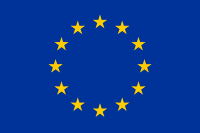Guidelines for CHIs Digital Transformation
This series of resources provide digital transformation guidelines for cultural heritage institutions (CHIs). They situate digital transformation in the context of opening up GLAM collections, inspired by the work at Europeana Foundation, the Europeana Aggregators’ Forum and the Europeana Network Association. They are based on an in-depth review of the state-of-the-art in self-assessment instruments for heritage institutions, of which the inDICEs self-assessment tool is a further evolution, taken on board insights and lessons learned from the COVID-19 crisis.
The proposed guidelines are centered around four themes: Digital Trends & Participatory Culture, IPR for Cultural Heritage, Strategic Skills, Collaborations and organisation growth, and Approaching Innovation and Digital Strategies. As a whole, they offer the right mix of ingredients for developing digital strategies in CHIs.
The section titled “Embracing Digital trends and Participatory Culture”, demonstrates the importance of the shift in cultural production due to creative exchanges in the digital sphere are highlighted, and CH institutions are encouraged to take up an active role, to monitor digital trends and exploit the powers of social media and participatory practices. However, while copyright laws, deeply rooted in pre-digital practices, prove still to be a major headache for CH institutions willing to operate in the digital sphere, the section on “Empowering IPR for Cultural Heritage” offers a step by step guide on how to turn digital collections into operable assets. In “Invigorating Collaborations & Organisational Growth” the guidelines provide insights into how to build the capacity to improve impact, detailing some useful tools for skills development. It stresses the importance for CH institutions to join networks and share expertise, and goes deeper in the development of appropriate value creation chains that can underpin future-proof CH business models.
0 processes No active nor upcoming processes
There are no active nor upcoming processes. Here is a list of the past ones.









